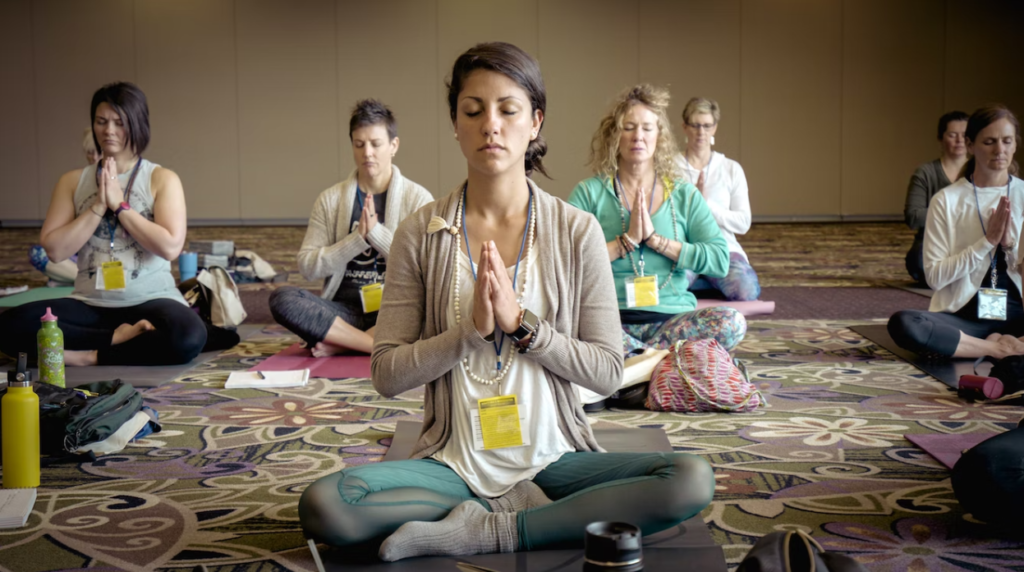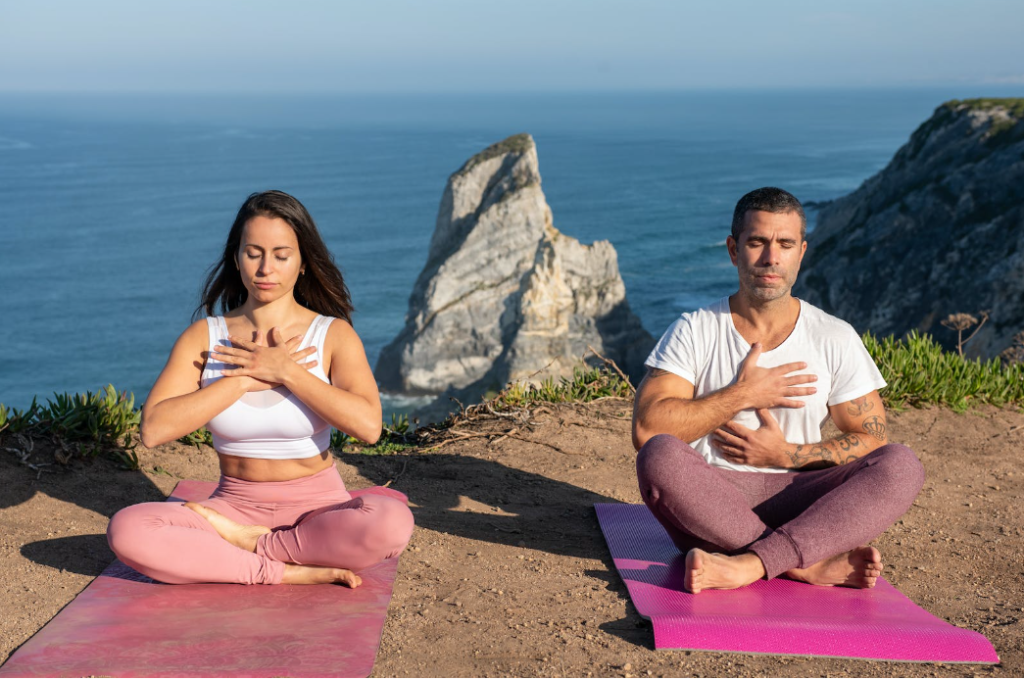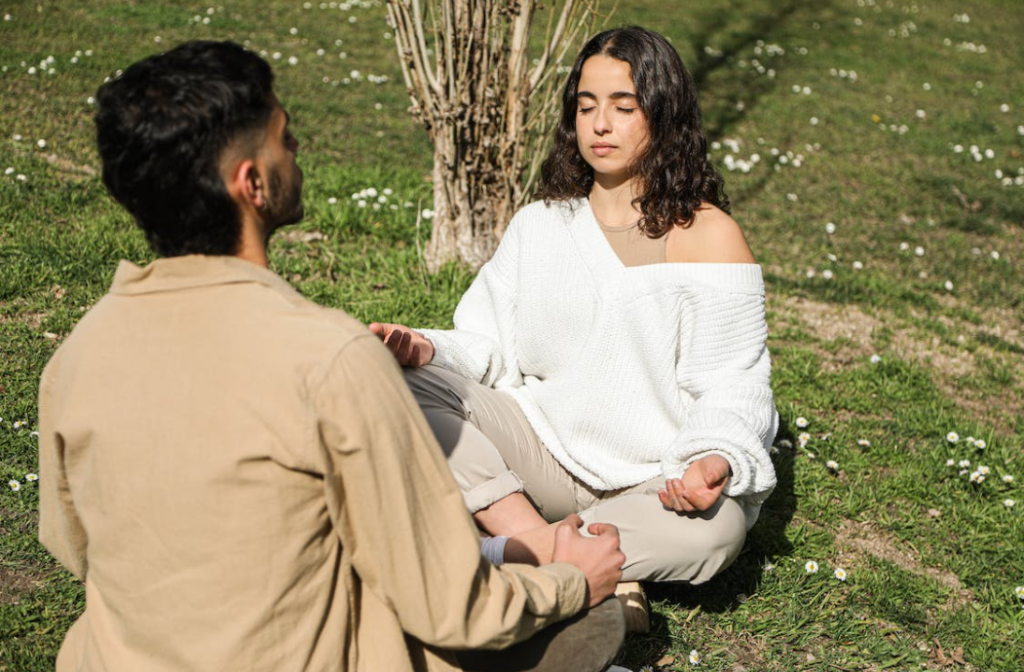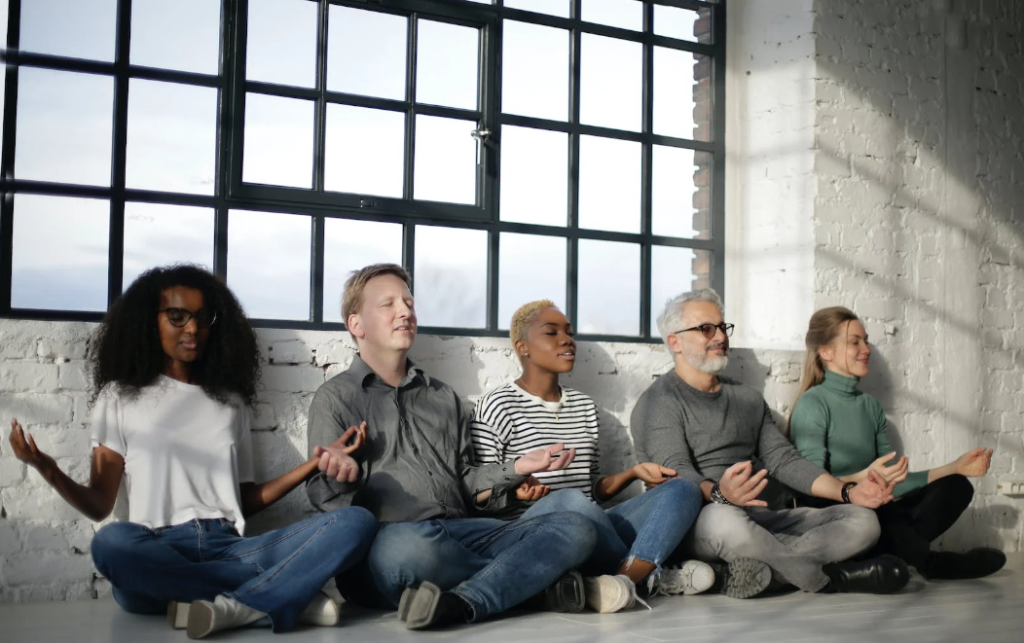Meditation Lessons
Begin learning more about meditation and consider joining a meditation group to learn more.

Selfpause Affirmation App
Download the app to get 1,000’s of affirmation meditations and everything you need to write, record and listen to your own.
If you are interested in learning more about meditation, you may want to join a meditation group. These classes can be held in a physical space, or online. Some groups are very small, with two people, while others may have larger groups. Groups can start with basic meditation practices, and then progress to more advanced practices over time.
Beginner meditation lessons

Beginner meditation lessons are beneficial for those who are new to the practice and would like to learn more about it. Meditation is a powerful technique that can help you increase your self-awareness and realize your true nature. As a meditation leader, you should ask your students why they want to practice meditation and what they hope to achieve. A good meditation leader is also willing to learn and keep the sessions short and sweet. Here are some tips on how to teach beginner meditation:
A good meditation guide should teach you how to meditate correctly. It is helpful for beginner and advanced practitioners alike. It will teach you the basics of meditation, how to introduce it to others, and how to improve your practice. Some guides will also teach you advanced meditation techniques.
Benefits of meditation

Meditation is an ancient practice that has many benefits. Meditation can relieve stress and improve your mood. It also rewires your neural pathways, which can help you achieve inner balance and peace. Studies have shown that it can reduce symptoms of depression. It is recommended for new mothers and pregnant women who are at risk of developing depressive disorders.
Meditation can also improve your tolerance and patience. You’ll find it easier to deal with difficult people and situations. It’s also great for people with difficult personalities, as it helps them learn to become more compassionate and understanding.
Methods of meditation

Meditation techniques are a way to relax the mind and increase concentration. There are a variety of different meditation techniques for children. One technique is visualization. Children can meditate by imagining something and seeing it in their mind. This will help them relax and free their mind of the many thoughts that keep them distracted.
Buddhism is another example of a form of meditation. It is practiced in many countries and is considered a religion or philosophy, depending on the nation from which it originated. In Southeast Asia, it is called Theravadan meditation. Zen Buddhist meditation has its origins in China, and Tibetan Buddhist tantric meditation is derived from the former nation of Tibet. In Christianity, contemplation and prayer are often considered to be forms of meditation.
Online meditations

If you have the desire to learn meditation, online meditation lessons can be a great option. InsightLA, a nonprofit organization that promotes meditation, began offering online meditation lessons in March 2020. Their courses have attracted students from across the globe and from all time zones. The courses are taught through a Zoom-style platform.
Many online courses also offer free meditation courses to help you get started. These lessons will teach you the basics of meditation and explain different methods. They will also walk you through the preparation process for meditation and give you advice on ways to fine-tune your meditation practice.
Need for a teacher

If you want to start teaching meditation lessons, you will need to find a certified teacher. There are many benefits to getting certified. These include increased credibility and reliability as a teacher and better prospects for future employers. However, if you are not certified, you can still offer meditation lessons by describing your personal experiences.
There are many types of meditation teachers. Choose a teacher who has experience in teaching different types of meditation. Meditation teachers must have extensive training and experience in their respective fields. They should be able to guide students safely through their challenges while connecting them to their internal wisdom.
Finding a community to support your practice

One of the best ways to continue to practice meditation is to find a community to practice with. Though you can meditate alone, it can be more meaningful to practice with others, as you will feel a more real connection to others. Also, meditating with a group helps you develop a habit and encourages consistency. Meditation groups are available through yoga studios and other types of organizations.
If you’re new to meditation, joining a group may be the best choice for you. Not only will you be able to share your experience with others, but you’ll also gain the encouragement of a group. Just like an exercise buddy, the support of other people can help you stick with your practice. Meditation is a new habit, and it takes time and dedication to develop it. Finding a community that shares the same values as you is beneficial for establishing a healthy meditation practice.
Our Top FAQ's
There are numerous potential benefits of meditation, including reduced stress and anxiety, improved focus and concentration, and increased feelings of calm and relaxation. Some research also suggests that meditation may have physical health benefits, such as lowering blood pressure and boosting the immune system.
Meditation works by helping the mind to become more present and focused, and by teaching the individual to become more aware of their thoughts and emotions without getting caught up in them. It is typically done through the practice of mindfulness, which involves paying attention to the present moment with an open and non-judgmental attitude.
Starting a meditation practice can be as simple as finding a quiet, comfortable place to sit or lie down and focusing on your breath or a mantra for a few minutes each day. You can also try guided meditations or attend a class or workshop to learn more about different techniques and approaches. It’s important to be patient and kind to yourself as you begin your meditation practice, as it can take time to develop the skills and discipline needed to meditate regularly.
One common mistake is expecting immediate results or becoming frustrated if progress seems slow. Meditation is a skill that takes time and practice to develop, so it’s important to be patient and consistent with your practice.
Another mistake is trying to force the mind to be quiet or stop thinking. This can actually increase feelings of stress and frustration. Instead, try to approach your meditation practice with a non-judgmental attitude, simply observing your thoughts as they arise without getting caught up in them.
Yes, meditation can be practiced by people of all ages and backgrounds. It is a simple and accessible practice that requires no special equipment or training, and can be modified to suit the needs and preferences of different individuals.
Here are a few tips for maintaining a consistent meditation practice:
-
Start small and gradually build up your practice over time. Even a few minutes a day can be beneficial.
-
Choose a time and place that is convenient and comfortable for you to meditate.
-
Be consistent with your practice, setting aside the same time each day to meditate.
-
Don’t worry about perfection or trying to clear your mind completely. Meditation is a process of training the mind, and it’s normal for thoughts to arise during the practice.
-
Find a meditation technique that works for you and stick with it. There are many different approaches to meditation, so it may take some experimentation to find what works best for you.
-
Don’t be too hard on yourself if you miss a day or struggle with your practice. It’s natural to have ups and downs, and the important thing is to keep coming back to your meditation practice.
